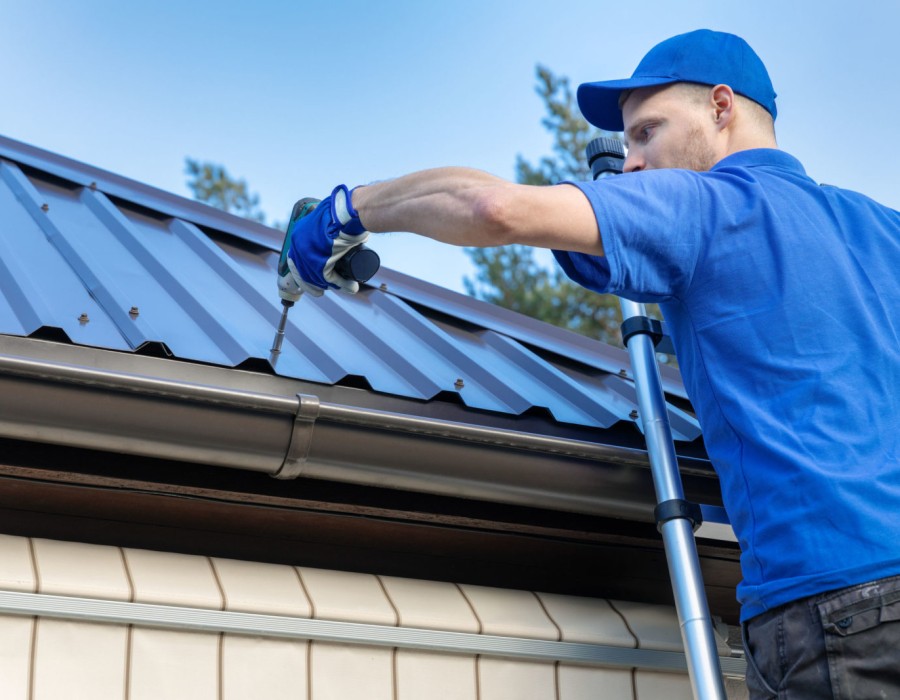When it comes to safeguarding your property, a reliable roof is paramount. Whether you own a commercial building or a cozy home, regular roof inspections play a crucial role in maintaining the integrity of your roof. In this guide, we will explore the importance of hiring a roof inspector, the differences between commercial and residential roof inspections, and the significance of roof maintenance.
Why You Need a Roof Inspector
A roof inspector is a trained professional who evaluates the condition of your roof, identifying potential issues before they escalate into costly repairs. Regular inspections can save you money in the long run and provide peace of mind, knowing that your roof is in good condition. Here are a few key reasons why you should consider hiring a roof inspector:
1. Early Detection of Problems
Roof inspectors are equipped with the knowledge and tools to identify early signs of wear and tear. Whether it’s damaged shingles, leaks, or structural issues, a thorough inspection can catch these problems before they lead to significant damage.
2. Safety
Climbing onto a roof can be dangerous. Professional roof inspectors have the experience and safety equipment necessary to conduct a thorough inspection without risking personal injury.
3. Insurance Requirements
Many insurance companies require regular roof inspections to maintain coverage. A documented inspection from a certified roof inspector can be beneficial when filing claims.
4. Increased Property Value
A well-maintained roof can increase the value of your property. Regular inspections and subsequent maintenance demonstrate to potential buyers that the property has been well cared for.
Commercial Roof Inspection vs. Residential Roof Inspection
While both commercial and residential roof inspections aim to assess the condition of the roof, they differ in several key aspects.
Commercial Roof Inspection
A commercial roof inspection involves examining larger and more complex roofing systems. These roofs often use different materials and construction techniques compared to residential roofs. Here are some considerations for commercial inspections:
- Complex Structures: Commercial roofs may include multiple levels, equipment, and varying materials, making inspections more intricate.
- Longer Lifespan: Many commercial roofs are designed to last longer, often 20 years or more, necessitating a different inspection frequency and approach.
- Building Codes: Commercial properties must comply with specific building codes and regulations, requiring a knowledgeable inspector who understands these requirements.
Residential Roof Inspection
On the other hand, a residential roof inspection focuses on standard roofing materials and structures typically found in homes. Considerations include:
- Material Types: Residential roofs may utilize asphalt shingles, metal, tiles, or slate, each requiring different inspection techniques.
- Frequent Wear: Residential roofs often experience wear due to weather conditions, necessitating more frequent inspections.
- Homeowner Awareness: Homeowners are generally more involved in the inspection process, seeking to understand the condition and longevity of their roof.
The Importance of Roof Maintenance
Once a roof inspection is complete, the next step is to ensure proper roof maintenance. Regular maintenance is essential to prolonging the life of your roof and avoiding costly repairs down the line. Here are some critical maintenance tasks to consider:
1. Regular Cleaning
Debris such as leaves, branches, and dirt can accumulate on your roof, leading to potential water damage and mold growth. Regularly cleaning your roof helps maintain its condition and prevents the buildup of harmful materials.
2. Inspecting Gutters
Gutters play a vital role in directing water away from your roof. Ensure they are clear of debris and functioning correctly. Clogged gutters can lead to water pooling, causing damage to both your roof and your property’s foundation.
3. Repairing Minor Issues
After an inspection, addressing minor issues immediately is crucial. Whether it’s a loose shingle or a small leak, prompt repairs can prevent larger problems that require extensive work and costs.
4. Professional Inspections
Even with regular maintenance, having a professional roof inspection conducted at least once a year is vital. This can help identify issues that may not be visible to the untrained eye.
Conclusion
A roof is one of the most significant investments you can make in your property. Whether you own a commercial building or a residential home, regular inspections and maintenance are essential for ensuring the longevity and integrity of your roof. By hiring a qualified roof inspector to conduct thorough evaluations, you can detect problems early and maintain the value of your property.
At Rock Top, we understand the importance of a well-maintained roof. Our team of experienced roof inspectors is dedicated to providing comprehensive inspections and reliable maintenance services for both commercial and residential properties. Don’t wait until minor issues become costly repairs—contact Rock Top today to schedule your roof inspection and ensure your roof remains in top condition for years to come!
By prioritizing roof inspections and maintenance, you’re not only protecting your investment but also enhancing the safety and comfort of your property. Remember, a strong roof means a safe home or workplace.





Comments